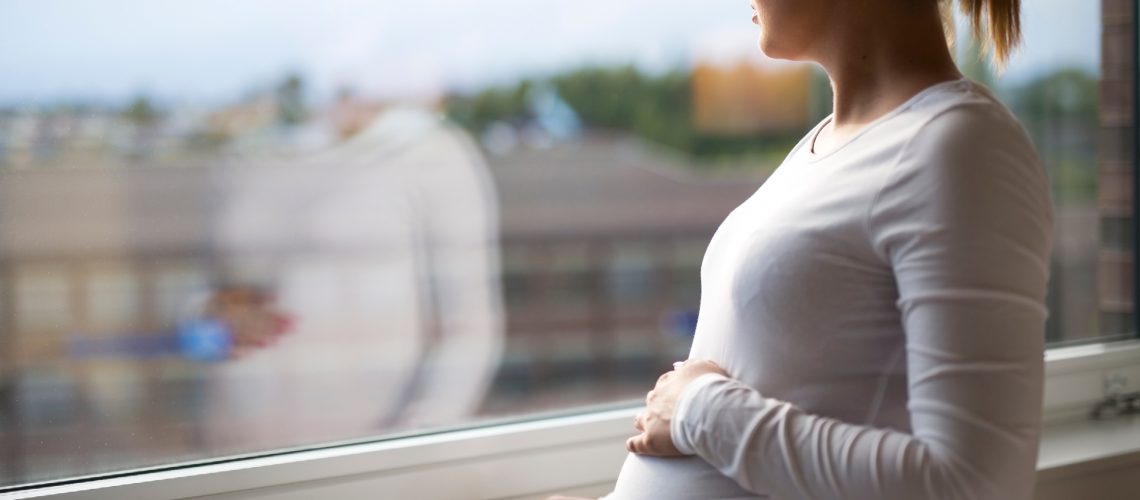Digest This
Click on the topics below to learn how probiotics can improve your digestive health, naturally.

Coronavirus and Pregnancy
- Staff Writer
- Children’s Health, Probiotics, Women’s Health
Coronavirus Adds New Anxieties for Pregnant Women
Recently, the World Health Organization labeled coronavirus disease 2019 (COVID-19) a pandemic. Many pregnant women have expressed concerns about the impact of COVID-19 on their health and the health of their unborn babies. Not much is known about pregnancy and the new Coronavirus as more research is being done.
As you might already know, the virus spreads through respiratory droplets sent into the air when a person who is infected coughs or sneezes. It might also spread when someone touches a surface infected by a person who has the virus.
Health officials are urging pregnant women, along with the elderly and others with weakened immune systems, to do their best to avoid exposure to the Coronavirus. Doctors suggest staying home as much as possible, avoiding crowds — including long lines at the supermarkets and other stores — and staying away from emergency rooms if possible.
New information is being discovered daily, but today we answered some of the most common questions surrounding pregnancy and COVID-19.
What can pregnant women do to protect themselves against the novel Coronavirus?
While there is further research underway across the world, it is currently not known if pregnant women have a greater chance of getting sick from COVID-19 than the general public or if they are more likely to have a serious illness as a result of it.
Women experience physiological changes during pregnancy that can weaken their immune systems and place them at higher risk for severe complications if exposed to viruses, especially if they have underlying health conditions. With viruses from the same family as COVID-19, and other viral respiratory infections, such as influenza, women have had a higher risk of developing severe illness in the past.
With little knowledge of how COVID-19 affects pregnant women and their unborn children, it is pertinent they protect themselves from illnesses and use all the precautions to reduce the chances of contracting COVID-19.
Pregnant women should do the same things as the general public to void infection. You can help stop the spread of COVID-19 by taking these actions:
- Cover your coughs and sneezes – using a tissue is best, but your elbow is a good alternative
- Avoid touching your eyes, mouth, and nose
- Wash your hands often using soap and water for at least 20 seconds
- Use an alcohol-based hand sanitizer
- Thoroughly wash your fruits and vegetables from the store
- Avoid public spaces (social distancing is important to limit the spread of the virus)
- Avoid people who are sick – even in your own home
- Hydrate and rest often
- Take a high-quality probiotic to promote healthy digestion and immune health
- Maintain a healthy diet, high in antioxidant-rich foods
Can COVID-19 be passed from a pregnant woman to the fetus or newborn?
It is not currently known if a pregnant woman with COVID-19 can pass the virus to her fetus or baby during pregnancy or delivery. No infants born to mothers with COVID-19 have tested positive for the COVID-19 virus.
In a recent study published in The Lancet, researchers followed nine pregnant women who had tested positive for the Coronavirus in Wuhan, China— the epicenter of the outbreak— during their third trimester. “Researchers found that none of the infants, all delivered cesarean, had the virus at birth. The virus was not found in samples of the mothers’ breast milk, cord blood, babies throats or amniotic fluid.”
“The risk of passing the infection to the fetus appears to be low, and there is no evidence of any fetal malformations or effects due to maternal infection with COVID-19,” according to the study.
Can you breastfeed if you tested positive for COVID-19?
While there is no evidence of the virus in breastmilk, the Centers for Disease Control and Prevention said it’s still not clear whether the virus can be transmitted to infants during feedings.
“Given that the virus is spread through respiratory droplets, mothers should wash their hands before feeding their babies, consider wearing a face mask to minimize the infant’s exposure and properly clean their breast pumps.”
Stay Positive and Take Your Probiotics
It’s important to keep it all in perspective! Create a new daily routine at home to help maintain a sense of normalcy until the baby arrives and take your daily probiotics to help build the best defense.
Resources
US National Library of Medicine
Centers for Disease Control and Prevention
The Royal College of Obstetricians and Gynecologist
There Is An Endomune Probiotic For Every Lifestyle
-
EndoMune Metabolic Rescue
$44.95 -
EndoMune Advanced Probiotic
$42.95 -
EndoMune Companion Pack
$112.93








